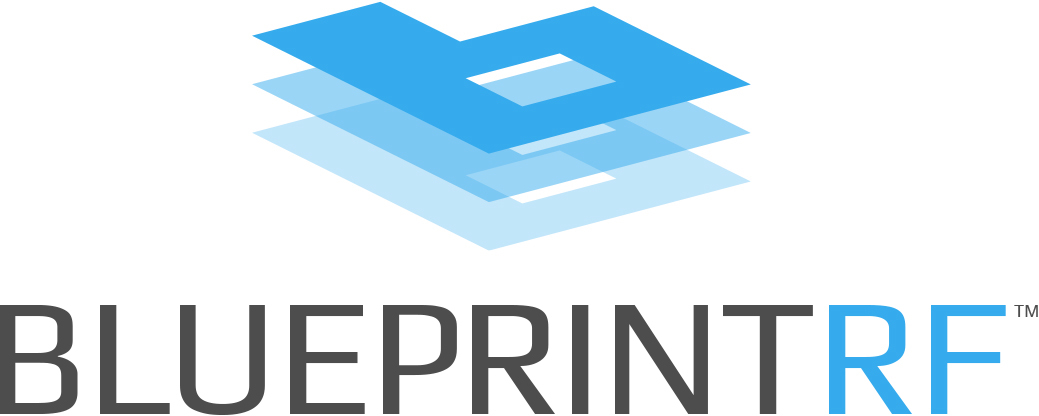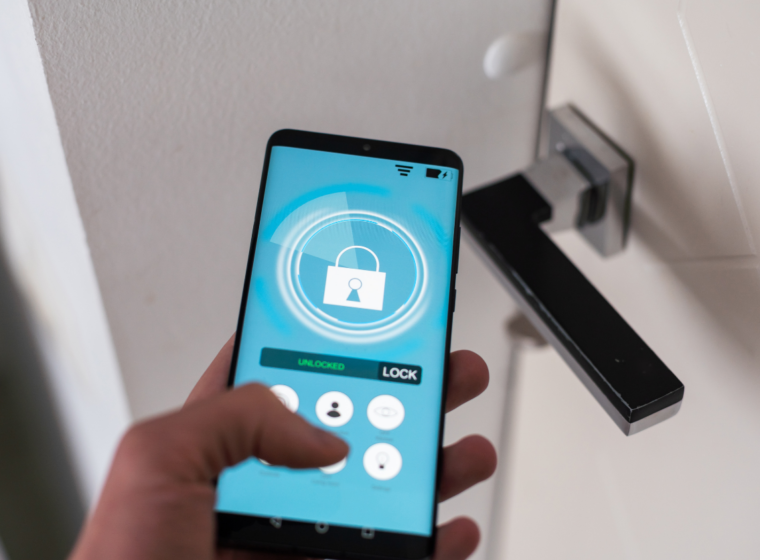The hotel guest journey can be likened to an extended road trip. Beyond the basics of finding a room, booking a room, and staying for one or two nights, the entire hotel guest journey covers multiple guest touchpoints that occur during and after their stay. Hotel guest journey touchpoints consist of any interaction or point of contact between a customer on their journey and the hotel business.
The adventure begins from the moment a potential guest finds your website and interacts with your content and core amenities. Booking a room is only the beginning — with hotel guest journey mapping, hotels can identify hotel guest touchpoints, strategically engage with guests at different stages until check out, and continue their impression on guests until long after their stay is over.
7 Essential Hotel Guest Journey Touchpoints
For hoteliers, having a firm grasp on the customer journey for hotel guests means zooming out and seeing the big-picture view, as well as zooming in and examining how well the hotel accommodates guests at each stage. Here, we highlight how to use hotel guest journey mapping to identify the most essential hotel guest touch points through the hotel guest journey.

1. Crafting a Responsive, Informative Website
First impressions matter, especially in a busy digital era when attention spans are short. Your hotel’s website often serves as that first impression, so it needs to resonate with prospective guests with the right information and delivery of content.
Having a responsive website – one that offers a clean and easy experience across all types of devices – is a fundamental necessity for the first guest touchpoint. Data shows that nearly 45% of travelers use mobile devices to book their accommodations and 85% use a smartphone to book travel activities.
A responsive and informative website is a must-have for hotels to reach their target audience and increase brand awareness. With that in mind, here are a few important boxes to check:
- Online presence: A well-designed website can ensure that a hotel is getting in front of potential guests at the right moment. With a website, a hotel can appear in search engine results, provide the details that guests are looking for, and make the reservation process far easier.
- Clean layout: A clean, sensible, and easy-to-understand organization is one of the most important hotel website features. A website must be easy for visitors to use and navigate; if a consumer cannot find what they are looking for on their customer journey, they are likely to leave the site for a competitor very quickly.
- Mobile-friendly: A mobile-friendly website is an essential hotel guest touchpoint for hotels, as more and more people are using their mobile devices to search for and book hotels. Having a responsive website that displays well on mobile devices can help boost bookings.
- Informative: A hotel website is a primary source of information for guests. It should provide all the necessary details about the hotel, including amenities, location, and contact information.
- Communication: A hotel’s website is a key avenue of communication between the hotel and its guests. It should be easy for guests to contact the hotel for further information or to make a booking.
Investing in professional photography, interactive online tours, and other web-related features can also provide high ROI in booking more guests. Pro tip: Consider adding an FAQ section to answer common questions guests might have before booking. Also consider turning your website into a marketing powerhouse by integrating SEO, social media, and email.
2. Engaging Social Media Presence
Having an engaging social media presence acting as a hotel guest journey touchpoint is critical for hotels for several reasons. For one, some potential guests overlook visiting the hotel’s website entirely, solely relying on social media search engines and social pages for their information.
According to Expedia, 90% of Gen Z travelers make decisions influenced by social media. This provides a powerful advertising launching pad to use as a hotel guest journey touchpoint, as many prospective guests turn to Facebook or Instagram to browse photos, reviews, and other socially relevant content to validate whether a hotel is hip to their liking.
But beyond connecting with young travelers, social media as a whole is a crucial asset for a wide range of reasons.
- Improve customer engagement: Social media provides an opportunity to act as a hotel guest journey touchpoint for hotels to engage with their customers and respond quickly to queries, provide support, and build relationships with their customers. By being active on social media, hotels can create a following and put themselves in a good position to be found by new potential customers.
- Increase brand awareness: Social media has become an essential tool for hotels to reach their target audience and increase brand awareness. By providing engaging content, like behind-the-scenes photos and videos of staff or user-generated content from guests that encourages interaction from followers, hotels can make a lasting impression on prospective guests even before they arrive at the hotel.
- Make a direct connection with guests: Social platforms are one of the most effective ways for hotels to have a direct connection with guests in various markets. By sharing a live video, posting photos of hotel amenities or local attractions, or showcasing unique offerings, hotels can create social media content that engages their audience and builds loyalty.
- Increase bookings: Social media is a driving force to increase hotel bookings and sales rates, as it is an efficient way to maintain visibility among the proper audience. By leveraging the power of social media as a hotel guest journey touchpoint, hotels can create a strong brand, allow greater exposure worldwide, drive sales, and create and maintain better relationships with customers.
- Share visual content: Guests understand content visually, and social media is a valuable element of a hotel’s marketing toolkit. Without a strong, active social media presence on the hotel guest journey, hotels may lose the attention of potential travelers.
By leveraging the power of social media as a hotel guest touchpoint, hotels can create a strong brand, drive more bookings, and build loyalty among their customers. Next to having a website, prioritizing Facebook, Instagram, Pinterest, and/or Snapchat is vital when mapping the hotel guest journey.
3. Personalizing Guest Welcome Emails
Welcome emails are a hotel’s digital handshake, the first step to building a rapport with guests. It’s about resonating with guests on a more meaningful level that fosters a sense of loyalty throughout the customer journey.
A study by Experian showed that personalized emails can generate up to six times more revenue than conventional, non-personalized emails. While this data looks at emails as a whole, personalizing guest welcome emails is an easy win for hotels when done right.
So how can hotels tailor their email communications to be more personalized with guests? Consider these approaches:
- Use the guest’s name and mention any special requests or preferences the guest has indicated.
- Include essential details such as check-in and check-out times, hotel amenities, and local attractions.
- Consider adding a welcome message from the hotel manager or general manager, or include a special offer or discount for the guest’s stay.
- Use high-quality images of the hotel and its amenities to make the email more engaging.
- Leverage email templates that can be easily customized and automated for improved communication with guests.
- Encourage guests to engage with the hotel by leaving a review or sharing their experience on social media.
Personalized welcome emails help hotels build stronger relationships with their guests and improve the overall guest experience. There are many ways a welcome email can be personalized toward guests, and these ideas are just the tip of the iceberg.
4. Customized Marketing and Upsells
In hospitality, customized marketing and upselling techniques can be game changers. Hotels can leverage hotel guest journey mapping to understand guest’s preferences and create custom-tailored offers that resonate with them. Making your guests feel special is not only about increasing revenue but also providing them with a personalized experience.
Hotels can offer a variety of customized upsells to enhance the guest experience and increase revenue. Here are some examples:
- Room upgrades: Guests can be offered the option to upgrade their room to a higher category, such as a suite or a room with a better view.
- Packages: Hotels can offer packages that include additional amenities, such as spa treatments, dining experiences, or local tours.
- Late check-out: Guests can be offered the option to extend their check-out time, either for a fee or at no additional cost.
- Transportation services: Hotels can offer transportation services, such as airport transfers or car rentals, to make it easier for guests to get around.
- In-room dining: Guests can be offered the option to order food and drinks to be delivered to their room.
- Special occasions: Hotels can offer customized upsells for special occasions, such as a bottle of champagne for a honeymoon or a birthday cake for a guest’s birthday.
- Personalized amenities: Hotels can offer personalized amenities, such as a pillow menu or a choice of bath products, to cater to guests’ preferences.
As with guest welcome emails, personalization is key to successful upselling, and hotels can use guest data to tailor their upsells to guests’ preferences and needs.

5. Gentle Check-Out Reminders
The check-out stage of the hotel guest experience journey is a crux that requires a mindful approach. Hotels can use gentle check-out reminders to ensure that guests leave on time and to avoid operational issues.
Automated messages to remind guests of the check-out time the night before their departure can help avoid any confusion and ensure that guests leave on time. But while automated, hotels can personalize check-out messages via SMS or email and include the guest’s name and any special requests or preferences they have indicated. It’s also helpful to communicate any late check-out fees upfront and include them in the check-out message to encourage guests to leave on time.
A hotel’s check-out reminder could be a text or email message saying something like, “Hi Sarah, don’t forget checkout is at 11 AM tomorrow. If you need more time, please contact the front desk about arranging a later check-out time.”
With this approach, guests feel cared for even in their final moments and leave with a positive impression that lingers long after they’ve left the property.
6. Request a Positive Review
One of the final and most valuable touchpoints in a hotel guest’s customer journey comes after the stay is over. Your hotel’s reputation can skyrocket when guests share their positive experiences online — but encouraging guests to leave positive reviews is easier said than done. Here are a few best practices to request positive reviews from guests:
- Ask in person: The best time to ask for feedback in person is when the guest is raving about something they enjoyed at the hotel. Hotels can ask guests directly for a review and provide them with a business card or a small sign with their review profiles.
- Include a message on check-out receipts: Hotels can include a message at the bottom of check-out receipts, inviting guests to leave a review online on their preferred review site if they enjoyed their stay.
- Send post-stay emails: Hotels can send post-stay emails to guests thanking them for their stay and asking for feedback. They can include a link to their review profiles and encourage guests to leave a review.
- Provide incentives: Hotels can offer incentives to guests who leave a review, such as a chance to win a free night’s stay or a coupon for on-site services. However, hotels must be sure to offer acceptable incentives that do not violate any laws or regulations.
- Respond to reviews: Hotels should respond to all negative reviews and some great reviews as well. Thoughtfully responding to online reviews can show guests that the hotel values their feedback and is committed to improving the guest experience.
- Include a review button on social media: Hotels can create a highlight button on their social media page that is called ‘5-Star Reviews’ and collate any positive mentions in there.
By following techniques like these, hotels can more seamlessly request positive reviews from guests and bolster their online reputation. After all, research from TripAdvisor found that 81% of people always or frequently read a hotel’s reviews before booking.
7. Leverage Email Incentives for Future Stays
As a boon for establishing customer loyalty, email incentives can offer guests special deals, discounts, and packages that they may not find elsewhere. Not only can this help build loyalty and encourage repeat bookings, but email incentives act as hotel guest journey touchpoints that provide a direct line of communication between the hotel and its guests.
Hotels can harness the power of email incentives in many creative ways:
- Send post-stay emails to guests thanking them for their stay and offering personalized rewards for future bookings. This can help establish a personal connection with guests and let them know that the hotel values their experiences.
- Offer special offers and promotions to guests via email to encourage them to book future stays. This can include discounts, packages, and exclusive deals.
- Promote their loyalty programs and offer rewards to guests who participate. This can include points for future stays, free upgrades, and other perks.
- Send event and special occasion emails to guests to promote upcoming events and encourage them to book future stays. This can include holiday promotions, seasonal offers, and other special events.
- Notify guests who have started the booking process but haven’t completed it with abandoned cart emails. These emails can offer incentives to encourage guests to complete their booking.
Additionally, hotels can use post-stay email incentives to solicit guest feedback and encourage them to leave reviews. Technology is a critical foundation to all this, enabling effective hotel guest journey mapping and optimization across each hotel guest touchpoint. This is where the support of companies like Blueprint RF comes into play.
Optimize the Hotel Guest Journey with Blueprint RF
A key component to enhancing the hotel guest experience and improving guest satisfaction is connectivity. Blueprint RF provides secure and reliable hotel WiFi services to ensure that guests have a high-speed Internet connection throughout their stay. Via hotel automation and dashboarding solutions, Blueprint RF also helps streamline various aspects of the guest experience journey. In turn, this can help hotels better analyze customer data and improve their operations to support strategic initiatives. For more information, contact Blueprint RF.











